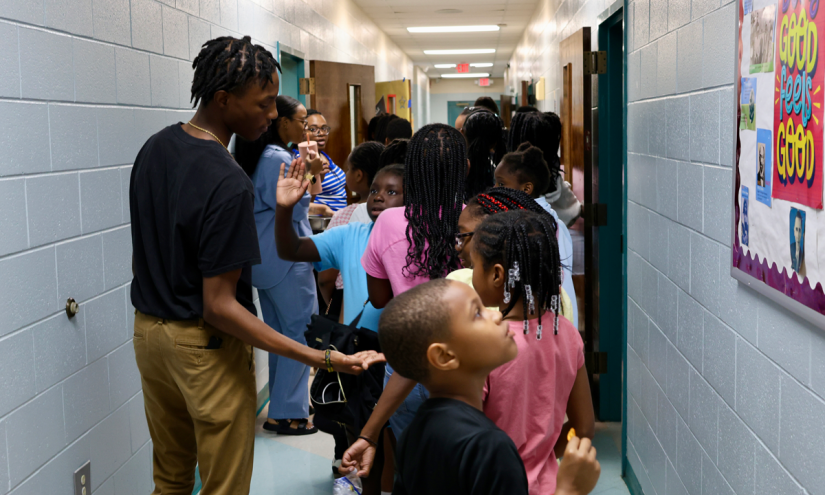The Beyond Transfer Policy Advisory Board is thinking creatively about financial and reputational incentives to improve transfer and learning mobility. In this article, two of the PAB’s members—Sharon Morrissey and Ron Anderson—who are both seasoned, system-level leaders, share their reflections on what is needed next to accelerate success in transfer and learning mobility.
In April 2025, the Beyond Transfer Policy Advisory Board and Inside Higher Ed collaborated on a webcast entitled “Short-Term Reward, Long-Term Harm: How Current Transfer Practices Hurt Learners and Institutions.” This event drew nearly 400 live attendees across 46 states, including a mix of administrative, faculty and student service leaders from institutions of all kinds.
During the webcast, participants were polled on the following question: “To what extent do you agree that new financial incentives or budgeting models could help institutions to prioritize improving transfer student outcomes?” The audience’s response was positive, with 85 percent agreeing at least somewhat. However, we see some divisions within the data, with 32 percent saying they “strongly agree” and 53 percent saying they “somewhat agree.”
While that data might feel a bit hard to make sense of, it rings true to us. Between us we bring over seven decades of experience as faculty, institutional administrators and system office leaders across three states, Minnesota, North Carolina and Virginia. That experience has taught us that improving credit transfer and expanding learning mobility are some of the most complex challenges facing higher education.
Why is this? For one, improving recognition of learning and credit transfer requires higher education institutions to contend with a wide range of prior learning experiences, including traditional college coursework, high school dual-enrollment courses, career and technical education, work-based learning, military service, industry certification, and more. This implies the participation of numerous learning providers, such as institutions of higher education, high schools, employers and the military. And it involves multiple decision-makers, such as students who choose transfer pathways, faculty who determine what learning to recognize and how to apply that learning to program requirements, enrollment managers who wish to recruit transfer students, registrars who process transcripts, deans and provosts who oversee academic standards, and presidents who are held accountable by policymakers for serving transfer students. In short, there is complexity at every step of the process.
That complexity points to the fact that—as the mixed results of that poll show—if we are going to make true progress on transfer and learning mobility, we must find solutions that appeal to the priorities of multiple decision-makers. As we think about incentives, for example, the incentives that would influence the behavior of a faculty member are not the same as the incentives that would influence the behavior of an administrator. Those responsible for revenue may be more swayed by a policy that would augment an institution’s state appropriation for increased enrollment and graduation of transfer students, while those responsible for curriculum may be more inclined to accept and apply transfer credit to a degree program based on their assessment of how the prior learning aligns to the learning outcomes of their own local courses.
Another key theme of the webcast—and, let’s be honest, nearly every discussion held these days about transfer—was that we must zero in on the credential applicability of prior learning. Past reform efforts have advanced incredible work such as understanding the student experience, increasing transfer student belonging, strengthening advising and creating infrastructure for efforts such as credit for prior learning. All that work is critical and must continue. But we must also double down on how to advance credential applicability of courses and other forms of prior learning. We are not helping transfer students meet their educational goals if we fail to apply their prior learning to program requirements.
Finally, a third theme elevated in the webcast was about shifting culture and mindsets. Achieving increased credential applicability will require a shift away from the current culture that interrogates every aspect of a course or other prior learning experience to find a course-to-course equivalency. Does anyone really believe that a student cannot be successful in a subsequent course, or in the workforce, if they happen to read a different textbook? As the Council of Regional Accrediting Commissions recently elevated, the practice of interrogating the minutiae of courses and other learning experiences should, instead, focus at a higher level, on questions such as:
- Does the sum of a student’s learning provide an appropriate foundation to set them up for continued academic success?
- Can a student be successful in subsequent learning experiences, with appropriate just-in-time support? How can the institution provide that support?
- What data do we have that a student will not be successful in a subsequent course?
Based on our experience working with institutions and systems, we share here three state policy ideas that attend to these themes by 1) appealing to the priorities of multiple decision-makers, in this case both faculty and administrators; 2) zeroing in on credential applicability of prior learning; and 3) nudging broader cultural and mindset shifts.
The first idea is for policymakers to explicitly include credit transfer and applicability within the design of state funding models by pinning rewards to credential applicability of groups of many courses. Right now, some—but not all—states have funding formulas that focus attention on transfer students’ outcomes. Those that do often include metrics such as the rate of students who transfer and bachelor’s degree completion for those who enter as a transfer student.
On their own, these goalposts are too broad and have not yet produced the level of change needed. How can states improve this approach? We think one approach might be for states to collaborate with institutions to build various program-aligned credit thresholds and then reward institutions for applying that credit to degree requirements, such as:
- Awarding and applying 15 program-aligned credits: The equivalent of what many refer to as a meta-major, designed to introduce students to a broad program area (e.g., allied health).
- Awarding and applying 30 program-aligned credits: The equivalent of roughly the first year of college, often represented by a general education transfer core that is customized to include program-aligned courses.
- Awarding and applying 60 program-aligned credits: The equivalent of a typical associate degree—but again, this must be a program-aligned associate degree.
The goal here is for receiving institutions to not pull these credit blocks apart and pick and choose which credits apply. If students have met a threshold and their preparation is program-aligned, they should be advanced toward program completion for all of those credits. The groups of courses students have completed add to more than the sum of their parts. Students are journeying through a learning experience, with a variety of learning outcomes, that when looked at holistically are offering strong preparation for not just subsequent courses, but life and work. The mindset shift here is: Students do not need to have met every single learning outcome addressed in the receiving institution courses to be successful. They need to be prepared enough to be successful in subsequent courses, learning experiences and the workforce.
Second, we encourage state policymakers to couple this policy change with demonstration projects that engage faculty in pedagogy, curriculum design and research. As receiving institutions accept and apply these groups of courses, what just-in-time supports should receiving institutions offer to students to ensure their success after transfer? How are students performing on a number of measures: in subsequent courses, for graduation and in the workforce? Which curricular design assumptions no longer hold? Where might classroom approaches be strengthened and evolved to reflect shifting needs of learners?
Finally, all the findings of this work should be elevated through state recognition awards (ideally coupled with some funding) that promote the visibility and reputation of colleges and universities that are embracing all high-quality learning and moving learners toward credential completion.
Through the Beyond Transfer Policy Advisory Board, we’ll continue to push against the status quo to imagine new possibilities for institutions and learners. Connect with us on Instagram (@beyondtransfer) to stay informed on the board’s latest policy insights and ideas, and visit our website to access prior research reports related to transfer, institutional finance and financial aid, including:
- Beyond Transfer Policy Advisory Board. (2023). Affordability Disconnects: Understanding Student Affordability in the Transfer and Credit Mobility Era. See paper with visuals and blog.
- Beyond Transfer Policy Advisory Board. (2023). Unpacking Financial Disincentives: Why and How they Stymie Degree-Applicable Credit Mobility and Equitable Transfer Outcomes. See paper with visuals and blog.











